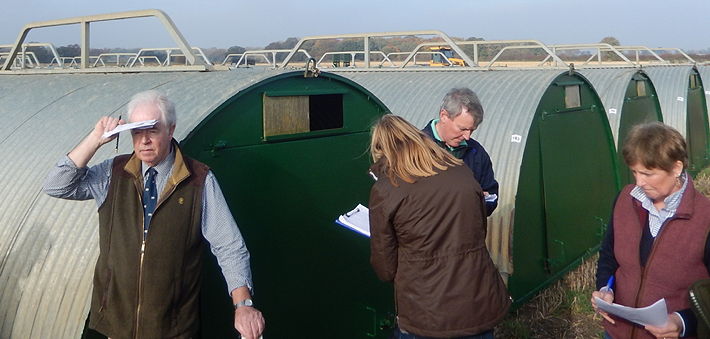Still more questions than answers as far as Brexit is concerned and difficult for those of us in the pig industry to work out all the implications of the deal/no deal situation at a time when the clock is running out of steam – rather like an edition of Masterchef where contestants have no menus and will soon be out of time.
The SPP continues to slide dropping by 0.97p to 151.05p with a significant backlog of pigs still in the system and many of them in the overweight category too, in some in cases at nominal values.
Weekly contribution prices have generally remained in the 134p-141p bracket.
With one of the major spot buyers’ throughputs affected by Covid, very little market evidence of spot values is available and where there is any space for one-off loads, sellers may have to face bids as low as 120p, although regular sellers might be able to achieve closer to 130p, but in any event, still well below cost of production.
Unfortunately, the domestic market continues to be undercut by very cheap imported pork with the influential German producer price quoted at 1.19 EUR which is equivalent to little more than 110p/kg.
Cull sow volumes at what is normally one of the busiest periods of the year have also been adversely affected by Covid restrictions, although the import/export pig meat market has been helped to some extent by the fall in the value of the Pound and a stronger Euro which traded today worth 91.7p but this was not enough to stimulate a better cull price which remains in and around 40p/kg, space permitting.
Weaner space remains as tight as Scrooge although the latest AHDB 7kg ex farm average which consists mainly of RSPCA Assured pigs, remains reasonably firm at £39.57/head, but spot and Red Tractor 7kg pigs are at a significant discount and in some cases closer to £35/head. 30kg weaner values are continuing to reflect buyers’ concerns over high feed costs, with the result that 30kg weaners have in the main traded around £15-£20 per head more than their 7kg counterparts.
Feed costs remain on the expensive side with UK feed wheat quoted on the futures market at £198/t for January and for September trades at £160/t. January feed barley prices have remained static at £154/t. Ex farm spot feed wheat has recently been traded in the £186/t region with weaker Sterling supporting UK cereal prices. Hipro soya values remain at high levels with January-April traded at £380/t and June-October at £362/t.
And finally, on the basis that in some cases every cloud has a silver lining, there could perhaps be a rise in UK pig prices if as a result of the Brexit related traffic chaos and import tariffs, foreign pig meat imports heading this way might be compromised. With the UK only around 55% self sufficient in pork, this could open the door for UK pig meat values to increase in the interim, but this, if it happens, could well be a case of short term gain and long term pain – or every silver lining having a cloud.




